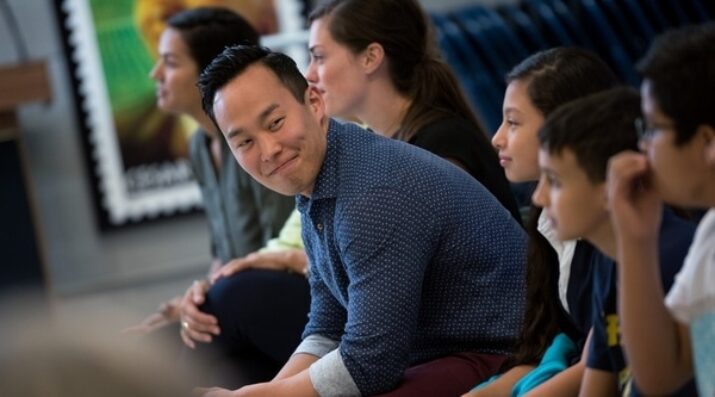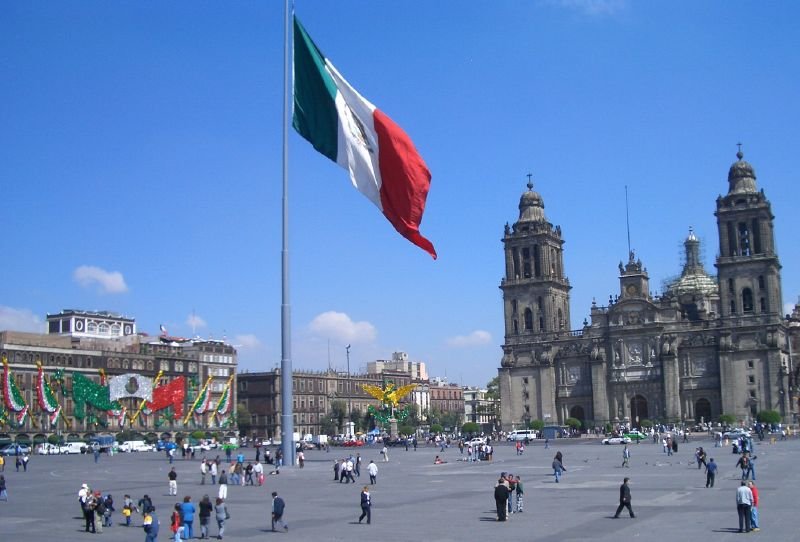Initiatives
The Zócalo Project

A digital "town square" for next gen educators, researchers, communities of all kinds, and funders to find each other, conduct rapid research, learn, and invent.
NGLC and KnowledgeWorks, through its Student-Centered Learning Research Collaborative, are partnering together to design a digital marketplace—the Zócalo—that challenges next gen educators, researchers, communities, and funders to collaborate on rapid education research and development (R&D) projects of mutual interest.
Through May 2020 and with a $100,000 planning grant from the Bill & Melinda Gates Foundation, NGLC and KnowledgeWorks will plan a prototype for the Zócalo as a viable solution to two problems:
- R&D Infrastructure - Education R&D must become much more inclusive and more deeply informed and driven by end-users—students, teachers, ed leaders, communities. Current structures and processes do not support or encourage that involvement and to some degree actively discourage it. Ed R&D will benefit mightily from rapid-prototype experiments that develop and demonstrate effective design and implementation principles for these new practices.
- Student Success - As education embraces the broader and deeper set of competencies and outcomes that today's youth need to be successful, new forms of ed R&D, such as “Model B” described by Harvard Graduate School of Education professor Jal Mehta, are critical. New forms of ed R&D may extend research findings in domains already well explored (i.e., traditional academic outcomes as measured by traditional assessment metrics) as well as address research questions beyond those domains. In particular, new research methodologies are needed to explore how students develop important competencies such as social-emotional learning (SEL) and executive function and how schools can measure that growth.
A Solution: The Zócalo
We envision a web-based marketplace that challenges and enables all stakeholders of ed R&D to collaborate on projects of mutual interest. We are exploring the viability of $20K-$75K opportunities for rapid, user-driven R&D projects in education. The marketplace will enable educators, community members, researchers, developers, data experts, and funders to identify each other around shared interests; create rapid R&D projects shaped by those shared interests; and learn from the results through a growing community of ed R&D practice.

The Plaza de la Constitución in Mexico City was the first public square to be called a zócalo. (Photo by schlaeger, CC-BY-SA)
Zócalo, a term of Mexican origin, invokes the characteristics of a diverse public square, marked by community interaction, a beehive of activity, and meeting in an inclusive, equity-based environment. The idea is built upon compelling models, including IDEO's Teacher Guild and DonorsChoose, as well as the combined capacities of NGLC and KnowledgeWorks.
- NGLC - National community of next gen educators who need ed R&D for broader, deeper student success goals; experience running grant challenges and supporting diverse communities of practice; experience collaborating with education research organizations to study next gen learning.
- Student-Centered Learning Research Collaborative at KnowledgeWorks - Community of researchers and educators generating equity-centered, collaborative research; expertise in synthesizing and disseminating research findings; experience collaborating with education research organizations and academic researchers to make their work accessible and actionable for practitioners and policymakers.
Key Questions to Answer
- Marketplace Design: What can we learn from other online marketplaces, in education and in other sectors, that can improve the effectiveness of the Zócalo’s design?
- Scope: How broadly or narrowly should we focus the mini-grant research project applications? For example, "executive function" or "anything that relates to whole-child development."
- Adoption by Intended Users: How can we set up the Zócalo community, messaging, platforms, and outreach to get at the questions and interests of those typically most marginalized by the research process as well as digital marketplaces? What technical and adaptive/design challenges can we learn from interviewing representative users of the Zócalo from different stakeholder groups—educators, community members, researchers, funders?
- Deeply Probing Equity-Related Challenges: How can a digital marketplace best reflect and serve the interests and priorities of Black, Latinx, and other communities and individuals of color who have been underrepresented in the design and implementation of most educational research to date?
- Traditional Incentive Structures: How can the Zócalo overcome the lack of traditional incentives for academic researchers, driven by teaching, publishing, and tenure demands, to become part of a more democratized research marketplace? How can the project build the additional supports needed to help interested researchers address any misalignment with the training and reward systems in which they work?
- Right-sizing Projects during the Prototype Period: How can we best “right size” the research projects catalyzed through the Zócalo? How can we set parameters that are reasonable for both practitioners and researchers regarding expectations, incentives, payments, research project duration, and more? For example, a rapid cycle can be at a grain size so small as to have little value outside of the specific context in which it’s tested.
- Sustainability: How can we build expansion into the design of the prototype beyond the communities we know well and expect to participate enthusiastically? How can we design the Zócalo to become self-sustaining past initial Gates Foundation investment, in particular with the costs of the mini-research grants and communications that draw users into the marketplace?
- Project Phasing: How should we phase the prototype roll-out? What is the minimally viable product (MVP) for the first phase; and what do subsequent rounds of funding need to be to move from launch to growth and, hopefully, maturity?
Planning Grant Goals
- Sharpen the design of the Zócalo, resulting in a grant proposal to support prototype development
- Clarify roles for NGLC and KnowledgeWorks and identify additional partners for the prototype phase
- Generate a set of recommendations for community-driven research design based on the research literature and promising practices in education and other sectors
